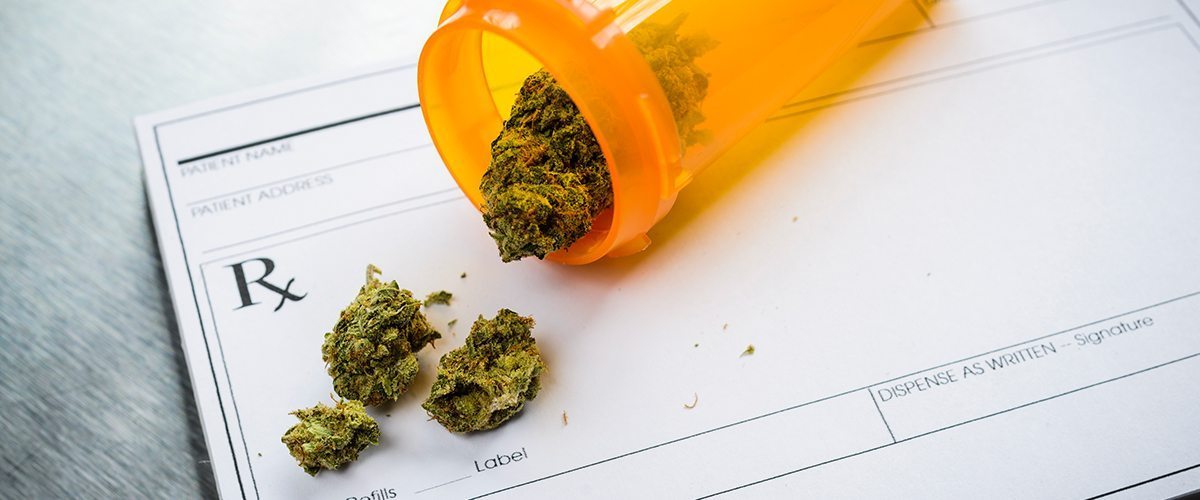[vc_row][vc_column][vc_column_text]
The New Hampshire governor signed into law a pair of bills that expands the state’s medical marijuana law by adding PTSD, Ehlers-Danlos syndrome and chronic pain as qualifying conditions.
Patients diagnosed post-traumatic stress disorder (PTSD), Ehlers-Danlos syndrome, or moderate to severe chronic pain will soon be permitted legal access to medical cannabis in the state of New Hampshire. Last month, Gov. Chris Sununu signed into law House Bill 157 and House Bill 160, which adds the three diagnoses as qualifying conditions and symptoms under the law.
House Bill 160 sponsor, Eric Schleien (R-Hudson), said in a written message that adding moderate to severe chronic pain to the state’s program “is an insanely big step forward in the right direction as it will allow many patients to use cannabis as an alternative to opioids.
“There has been a lot on this which shows that doctors prescribe fewer opioids in states where medical cannabis is an option for pain, and those states have lower fatal overdose rates,” he said.
Medical experts argue that recommending cannabis rather than opioids for patients for pain management purposes could help address the nationwide overdose epidemic. Studies have found that medical marijuana legalization reduces opioid intake and related hospitalizations.
Schleien also sponsored a bill that would have added opioid addiction as a qualifying condition. That bill was unanimously rejected by committee and eventually killed in the House by a voice vote.
The moderate to severe chronic pain law is effective as of August 15, while the PTSD and Ehlers-Danlos syndrome law takes effect on August 27.
Some state lawmakers had attempted to add PTSD as a qualifying condition last year, but the House’s Health, Human Services and Elderly Affairs Committee shot down the bill with a unanimous 16-0 vote. This year’s bill passed the committee with a close vote of 9-8.
In this year’s committee majority report, Rep. Jess Edwards (R-Auburn) wrote that “New Hampshire has the fourth largest veteran per capita population in the Nation,” and argued that PTSD “in this population is a significant health concern. PTSD can often go untreated while many victims choose to self-isolate and self-medicate. The potential to use medical cannabis may bring more patients into a clinical setting.”
Earlier this year, lawmakers approved Senate Bill 17 to add hepatitis C as a qualifying medical condition. That law went into effect June 16.
While medical marijuana became legal in New Hampshire in 2013, the state’s program wasn’t operational until spring of 2016 when patients diagnosed with qualifying conditions could begin to obtain medical cannabis from dispensaries. Under the law, qualified patients are allowed to possess up to 2 ounces of usable marijuana. The state now has over 2,000 patients registered with its medical cannabis program.
New Hampshire is one of 29 U.S. states that have legalized marijuana for medical purposes. New Hampshire’s program is unique to others, as for patients to qualify a physician or advanced practice registered nurse must certify that they have both a qualified condition and a qualified symptom.
You can learn more about the medical marijuana laws in New Hampshire and throughout the U.S. by visiting our education page.[/vc_column_text][/vc_column][/vc_row]






